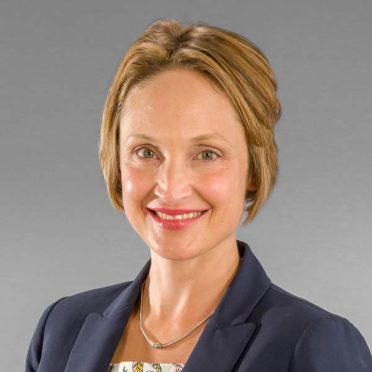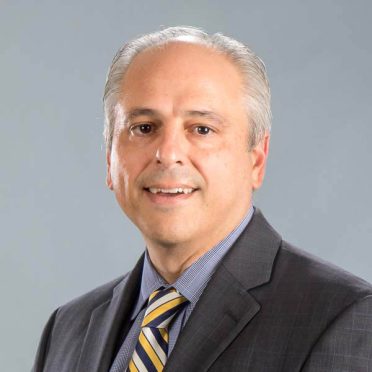Hartford HealthCare Infectious disease specialist Dr. Faiqa Cheema was among the many physicians who suffered in silence during the COVID-19 pandemic, reluctant to seek help because of the stigma associated with doctors seeking help for burnout and their mental health. After all, according to society’s stereotypes, physicians are supposed to be the ones who are strong, putting the health of others before themselves at all costs.
“There is a shame so profound that it keeps our pain in silence and secrecy,” said Dr. Cheema, who was a panelist Friday, Sept. 10, at the Institute of Living’s World Suicide Prevention Day event. “I didn’t want to be seen as incapable.”
But after some soul-searching, she sought help through therapy, and is now speaking out that physicians are not immune to feelings of fear, anxiety and burnout, and they should not be ashamed of seeking help.
“(Seeking help) gave me the courage to use my voice and share my story and my pain to provide a bridge to other people,” she said. “Our culture needs to change, we reward overwork and exhaustion, no one says ‘hey, it’s too much,’ and that needs to change.”
Sharing stories of how COVID-19 profoundly impacted the healthcare workforce and how to handle the increased stress was the topic of a roundtable discussion at “World Suicide Prevention Day: From Awareness to Action, a virtual event with experts discussing issues contributing to healthcare workforce burnout and the impact of COVID-19.
In the past, the event has focused on highlighting other groups facing mental health challenges, whether it be veterans or first responders, but this year the focus is on healthcare providers themselves, a fitting topic considering the surprising numbers of physicians who die of suicide each year.
“Each year has a theme and this year we are looking inward at ourselves, the voices you are going to hear have their own lived experiences of managing stress in a healthcare environment,” said John Santopietro, Physician-in-Chief, Hartford HealthCare Behavioral Health Network and Senior Vice President, Hartford HealthCare.
Burnout was an issue even before the pandemic, and there are between 300-400 reported deaths of physicians by suicide each year. Dr. Santopietro pointed out that is the average size of a medical school, that the medical community is losing each year to suicide.
He said he hoped those attending would take away lessons on a personal level, an educational level and from a systemic standpoint as well. “We have extraordinarily good outcomes when people are connected to the right supports at the right time,” said Santopietro, who added that he hopes the conference helps return joy to the practice of medicine.
Physician suicide
Corey Feist, JD, MBA, co-founder of the Dr. Lorna Breen Heroes Foundation and chief executive officer of the University of Virginia Physicians Group,
was working on the topic of physician burnout and stress even before the COVID-19 pandemic but then was brought personally into the fight for increased awareness by the death of his sister-in-law, Dr. Lorna Breen.
Dr. Breen died by suicide in late April 2020. She spent her career in practice at New York Presbyterian Hospital in Manhattan and became the director of the emergency room at the Allen Hospital in 2008.
Feist, the keynote speaker at the conference, now raises awareness by telling his sister’s story and pushing for legislation and funding to better support healthcare workers’ mental health.
He showed a video interview that explained how Dr. Breen was working long hours, had battled the virus herself, and was afraid to seek help. She thought admitting weakness and asking for help would have been devasting to her career. Her family believes that was a combination of the effects of COVID-19 on her brain, the culture of medicine and the stigma surrounding getting help for mental health that led to her despair.
Physicians are human
“It is a well-established premise in healthcare that you do not seek mental health counseling because of licensing, fear of the loss of your reputation and your career,” Feist said. “We need to reduce the stigma and raise the awareness of the importance of seeking professional care for mental health issues.”
The discussion of changing the culture in healthcare was echoed by the panel’s speakers.
Speakers for the roundtable were all part of a podcast project, “Lift the Mask, Voices of Heroes in the Silent Pandemic,” with The Quell Foundation and Hartford HealthCare. The foundation promotes open, judgement-free dialogue to normalize the conversation around mental health.
One of the most powerful moments of the roundtable was when Amanda Pollard, RN, BSN, calmly spoke about losing her mother 10 years ago to suicide. Her mother was an OBGYN physician, and Pollard was a sophomore in college when she lost her, which was her first experience with suicide and realizing the impact of burnout on healthcare providers.
Now a pediatric ICU nurse at Rainbow Babies and Children’s Hospital in Cleveland, Ohio, Pollard was about to go back to school at the beginning of the COVID-19 crisis, but she decided she couldn’t abandon her colleagues or peers at that time.
Help is available
Lakshman Swamy, MD, Medical Director, MassHealth Payment & Care Delivery, who had finished his fellowship as an ICU pulmonologist at Boston University when the COVID-19 outbreak began, spoke about his experience, going for a run with his child in a stroller. He initially meant to go for a short walk but ended up basically running a half marathon with tears streaming down his face.
Dr. Swamy realized he wasn’t processing his emotions and needed to seek help. As a healthcare professional, he had told himself in the past if he was thinking about self-harm he would seek help, but then he realized you should seek care way before it gets to that point.
“I think many people have misconceptions about (therapy), they think they have support or friends they can turn to. But it is different, you don’t go to therapy for advice, you go to them because they are free of the bias of a relationship, they can ask you the hard questions and you can’t worm your way out of it,” he said. “They hold up the mirror and guide the conversation, but it is hard work, it is someone who is asking all the right questions and holding you accountable to answering them.”
All the presenters spoke about the importance of systemic change, culture change and normalizing mental health concerns by speaking about them. Dr. Swamy likened it to a recent bout of plantar fasciitis, once he was stretching at work, speaking about how it was bothering him, other people spoke up about also dealing with it. He said to seek therapy, take time for your own mental health, and to share that with others is so important.
National Physician Suicide Awareness Day is Sept. 17, a day to raise awareness of the mental health stress providers can face.
Jennifer Ferrand, PsyD, director of well-being for Hartford HealthCare, asked colleagues and patients of clinicians to take the time to ask their healthcare providers how they are doing, and encourage them to seek help. Hartford HealthCare has a wide range of help available for clinicians on its HHC Connect Intranet and is also in the midst of a “Zero Suicide” initiative to reduce the number of suicides inside and out of healthcare facilities.
If you or someone you know needs someone to reach out to dial 800.273.8255, The National Suicide Prevention Lifeline at 800.273.TALK (8255), or 911 immediately.




